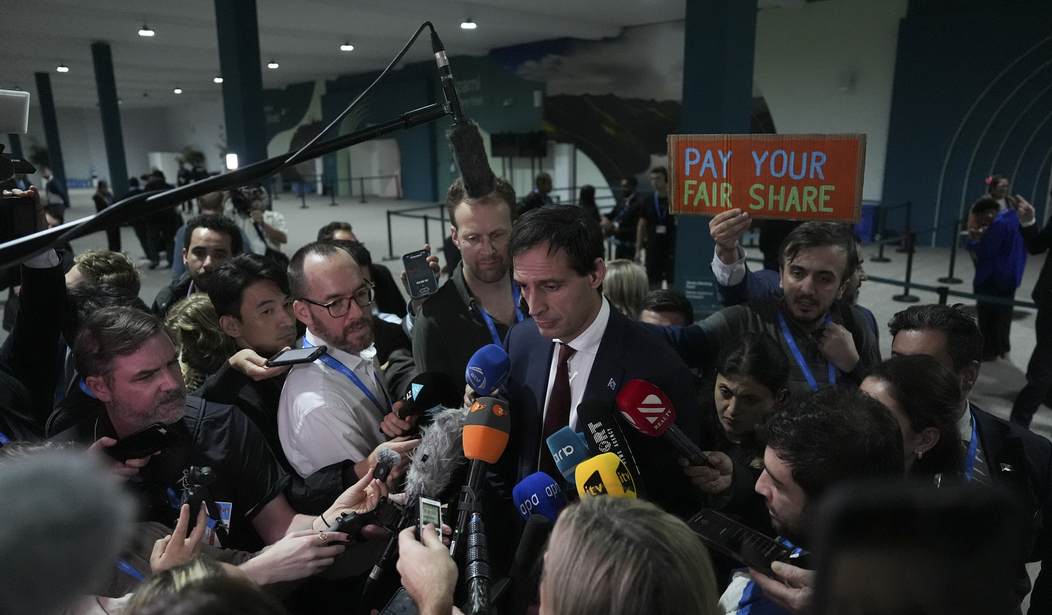As the global energy landscape pivots in the shadow of November 2024's seismic political developments, the world finds itself navigating a complex web of geopolitics, market maneuvers and environmental debates.
In recent weeks, we have seen the return to world leadership chief climate skeptic Donald Trump and the conspicuous absences of key leaders at “green” energy’s COP29 annual summit. These punctuate emerging narratives from Africa, Asia and Latin America that signal an unmistakable ascendance of energy security and national sovereignty as priorities not to be denied.
The supposed unified, Western-led march toward decarbonization has given way to a more complex reality of increasing fossil fuel consumption driven by economic and societal pressures for wealth creation in developing countries.
The Future of World’s Largest Oil Producer
Donald Trump's election victory has once again emboldened many countries to reassess their current climate policies. His plans include expanding offshore drilling, reviving coal mining and dismantling unnecessary and expensive federal support for intermittent energy sources.
His appointment of Chris Wright to lead the Department of Energy (DOE) underscores his administration's pivot to hydrocarbons as central to U.S. energy security. In fact, this is the first time a person from the energy sector has been appointed as DOE head, which makes even more obvious the direction of U.S. policy beginning in January.
COP29: A Gathering in Isolation
Recommended
Hosted in Baku, Azerbaijan, the United Nation’s annual climate circus COP29 became virally popular for who was missing or leaving early. Leaders from China, India, and Russia – some of the world's largest energy consumers – opted to prioritize other platforms, such as the BRICS-led Kazan Declaration that emphasized energy security over reductions in fossil fuel use.
While some Western nations continue to cling religiously to a hydrocarbon hostility based on pseudoscience, the developing world's climate apostasy has grown louder. Countries like India lambast the hypocrisy of wealthier nations that demand “decarbonization” without offering viable alternatives to coal, oil and natural gas.
Notably, Azerbaijan’s president, Ilham Aliyev, declared fossil fuels "a gift from God" even as he hosted in his capital COP29, where solar and wind energy are to be revered. This declaration, coupled with Azerbaijan's plans to expand natural gas production, highlighted the irony of a petrostate hosting a climate summit aimed at phasing out fossil fuels.
Argentinian President Javier Milei withdrew his 80-person delegation from COP29 less than a third of the way into the 11-day extravaganza.
In all, the event appeared headed to dismal failure, leaving one to wonder whether the final nail in in the climate industrial coffin would be duly fixed at this year’s event. On the flip side, a dozen energy-guzzling countries at the BRICS summit in Kazan, Russia, agreed on ensuring the reliable supply of fossil fuels.
Fossil Fuels in Asia, Africa and South America
Yes, China and India are devouring coal and not stopping anytime soon. Yet, the quantity of fossil fuels being produced and consumed in other developing countries is seldom noticed by the media.
Japan for example has gone all out in ensuring new markets for natural gas imports and boasts the world’s largest storage facilities for incoming gas. Indonesia, too, is planning to increase coal uptake and production.
Ongoing explorations in Suriname and Guyana are now joined by more oil and gas discoveries in Ecuador. Proclaiming an unstoppable momentum for South America’s oil and gas sector are the shale boom in Argentina’s Río Negro province, the abundant oil production in Colombia’s Llanos basin and Petrobras’ expected third-quarter net profit of more than $5 billion in Brazil.
Africa is emerging as a focal point for new oil and gas development. The frank admission by South Africa's energy minister at the African Energy Week about the necessity of fossil fuels for energy security reflects a broader African narrative. New oil and gas fields across the continent – from the Orange Basin in Namibia to the Tilenga and Kingfisher fields in Uganda – suggest a prioritization of economic development over climate concerns.
While European countries double down on climate targets, much of the developing world is prioritizing economic growth through fossil fuels. These shifts reveal a fracturing of what has always been a shaky global alignment on climate action and highlight the enduring role of hydrocarbons in powering the world.
As the dust settles, the contours of a new energy order are beginning to emerge – one defined by pragmatism, regional alliances and a blunt acknowledgment of the doomsday cult’s decrepit state.
Vijay Jayaraj is a Science and Research Associate at the CO2 Coalition, Arlington, Virginia. He holds an M.S. in environmental sciences from the University of East Anglia and a postgraduate degree in energy management from Robert Gordon University, both in the U.K., and a bachelor’s in engineering from Anna University, India.

























Join the conversation as a VIP Member